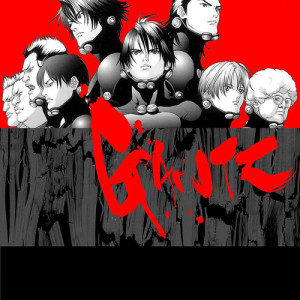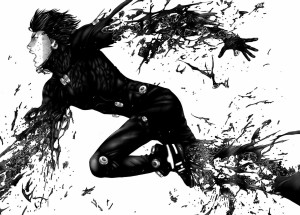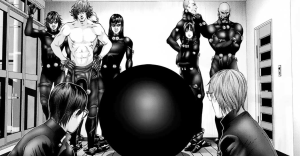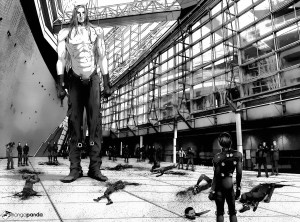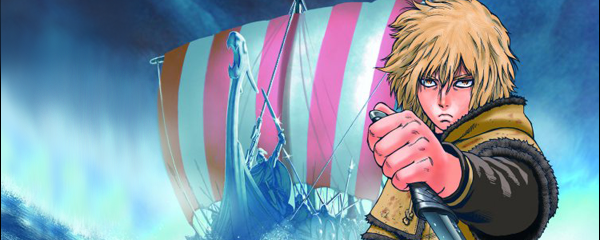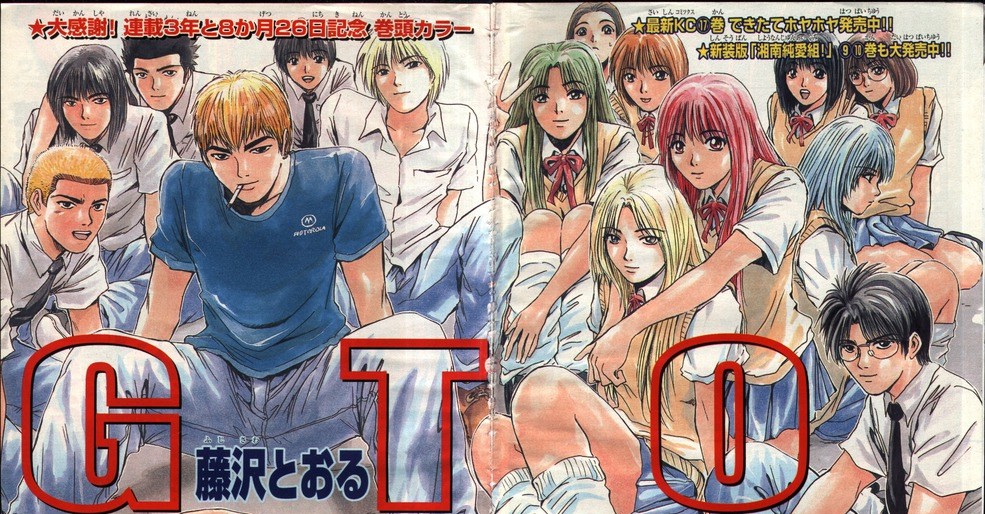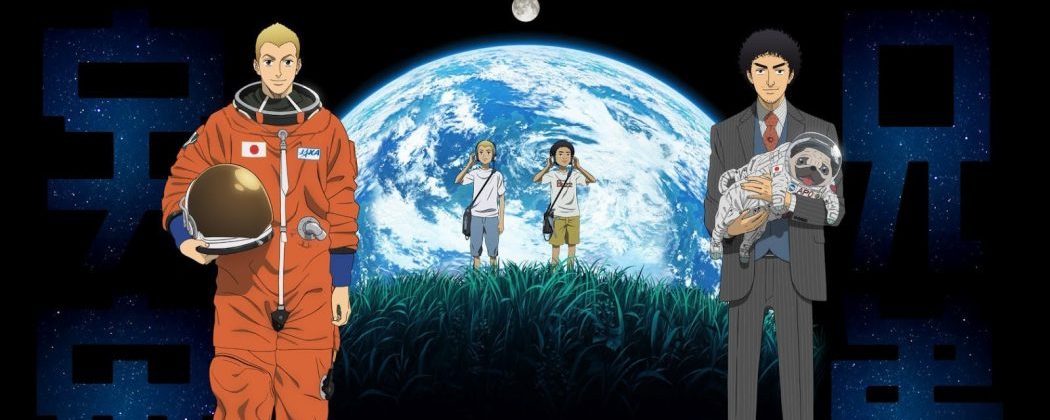I have a very clear bias when it comes to Gantz. Hiroya Oku’s masterpiece was one of the very first manga I’d ever read, and in my mind it represents a kind of pinnacle. It’s a culmination of good ideas, good storytelling, good characters, and an almost godlike ability for plotting twists. Gantz is insane. Seriously, the story is off the wall crazy, and the ideas it plays with are timely and relevant. Gantz tells a story about one of the last frontiers remaining: virtual reality.
VR gives us the ability to transcend the plasma screens that video games are limited to, and step into the digi-verse first hand. For decades art and media have fantasized over what the concept might look like, what the technology would enable, and how humanity might change. Each story unpacks the possibilities of what it might feel like to jump between pixels and exist in-between the zeros and ones of code. The conclusions vary wildly ranging from uncontrollable fun to unbearable nightmare, but the notion has never quite lost its edge.
Gantz takes VR in a different direction. By using our preconceived notion of what VR is Oku tells a tangled narrative about a boy who was in a fatal accident but didn’t die, he is resurrected and given a second chance. Except his survival comes with a caveat, he has to play a game. Instead of heaven, he finds himself in a room with a sphere and a group of other people all similarly saved from the brink. The black sphere offering them a single opportunity: kill aliens that have invaded earth or go back to their dirt nap.
What separates Gantz and makes it Masterwork worthy is that it doesn’t use VR as a gimmick; Oku channels something a little darker. Gantz taps into the horror and uncertainty one might feel as they are forced into a monster filled unknown. It plays seamlessly off of the anxieties humans have developed with regards to technology and its rapid development. He forces the reader to think about what it might be like to step into a world where the limits between reality and technology are blurry. Where there is no perception of real or fake, and the enemies you are shooting at bleed. Gantz isn’t so much a story about VR as it is a story that uses VR as a starting point. Oku uses our fear of all things Skynet to torture his characters in terrible, gut wrenching ways.
I have never been more conflicted than when I am reading Gantz. On one hand the notion of a bunch of strangers coming together to fight a common foe seems awesome. First person shooters are a long time favorite of mine and Oku gives us a clear picture of what the VR version might look like. On the other hand he does such a good job depicting them that the moral issues start to strike a chord. No longer are you aiming at a 3D model on a screen, there are alien children that cry and beg and you have teammates that vary from meek nerd to full on sociopathic killer. The reality is much scarier than the dream.
The farther our main character, Kei Kurono, gets in his quest to kill the invaders the more complex our feelings get regarding the wanton violence and technology. At first he and the others are given simple missions from the sphere. Kill a certain type of alien, or a small but manageable number. But then things change.
Before I go any farther in the plot it is important to note two things. Firstly, this story is violent and is jam packed with both nudity and extremely depraved situations. I would rank it among the most twisted things I have ever read, and believe you me, that’s saying something. Viewer discretion is advised.
Secondly, Oku has structured his series into phases 1 through 3. The story starts small and as the phases start to turn, ramps up in both intensity and complexity. The narrative shifts from being a simple story about a boy and the morality of virtual murder, to a large cast of characters numbering in the dozens, faced with a horrifying revelation. [***SPOILERS***] The game may not be entirely VR, they may be actually fighting off a full fledged alien invasion. A leap that brings with it a redefining shift in tone. All of the teammates that have died, they really died. All of the aliens Kei killed, they were all real living things. Madness descends on the narrative as twentieth century Japan is plunged into a certified warzone. Anarchy fills the streets as hundreds of revived people fight for their lives and for their country. All of them questioning if what is happening can possibly be real. [***SPOILERS***]
From phase 2 onwards Gantz moves with the grace of an out of control speeding train. The way the narrative escalates and evolves is fearless. Oku is not afraid to take an idea or concept to its natural and logical end. The most obvious examples of this are his characters which range from sociopath middle schooler to mass murdering yakuza. Often times the story pushes boundaries that a western audience might find nerve-wracking or depraved. What results is a story that has no real limits or brakes. Gantz barrels forward with unstoppable momentum. For those that can take the more nauseating parts of the narrative you are rewarded with a story quite unlike anything you have ever read. From Oku’s imagination comes a unique and breathtaking experience that you have to flip through to truly believe. A feat made even greater due to the story’s devotion to its core concepts and principles. Gantz never stops its exploration of VR and video games and group dynamics.
The story reads like a mixture between Halo and WWII, often bouncing between unspeakable evil and fluid action in the same breath and panel. The combination is mostly successful, if a little over the top. That said it is never, even for a second, boring. Gantz has few rivals in its ability to be consistently entertaining. There is big budget production value about the way Gantz hits certain action beats and suspends disbelief. Up until the very end Oku delivers. Gantz embraces its own absurdity and in the process becomes a timeless sci-fi classic. A story about what the world might look like if an online game became reality.
For me, Gantz stands among the greatest manga ever published. The sheer absurdity of its narrative creates a kind of glee-filled fun unmatched by anything in the genre. More than just a story Hiroya Oku creates an experience that carries the reader away and for the span of thirty seven volumes, transports them. A journey you are all going to have to read to believe.


